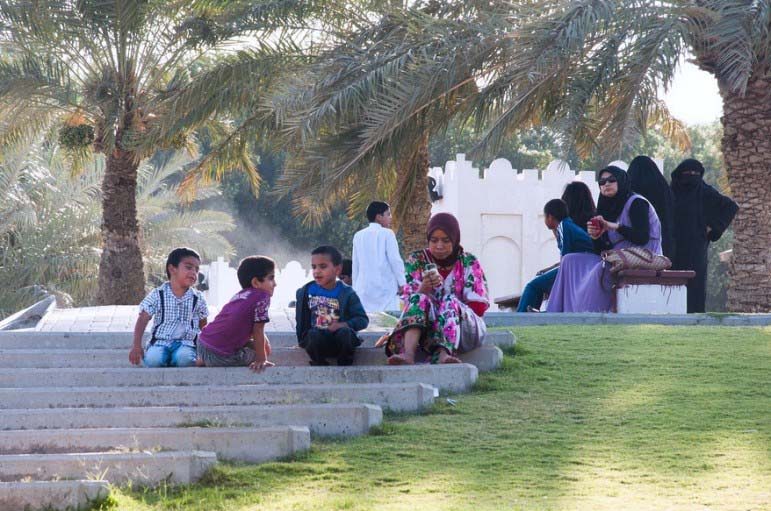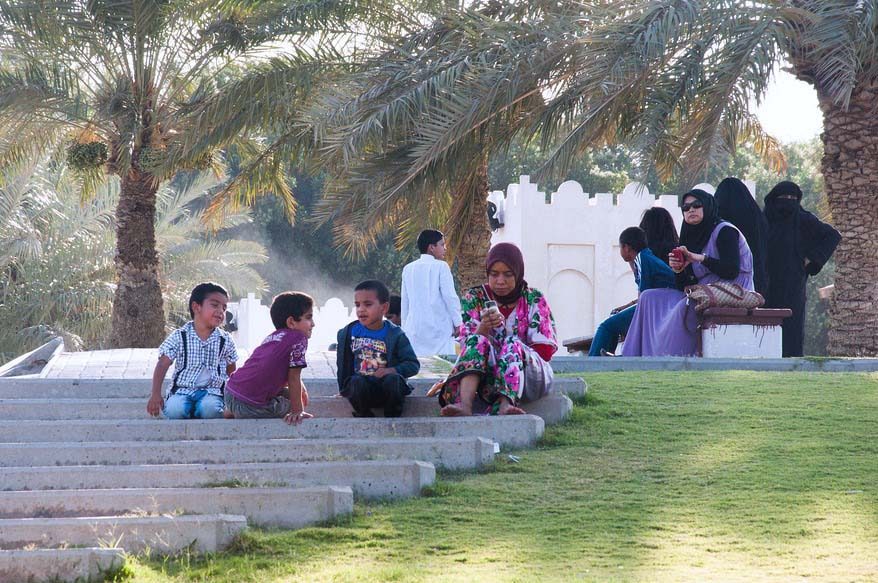
Updated on January 21 to include comments from Qatar Maid Service
More than a year after the Philippines government asked Gulf countries to enforce a domestic worker contract that would pay its nationals US$400 (QR1,457) a month, the country’s ambassador in Doha has acknowledged a swift decline in the number of Filipinas working as maids in Qatar.
Speaking to Doha News, Ambassador Crescente Relacion said:
“There was a drastic reduction in the number of Filipina domestic workers. (The) Qatar (market), in effect, did not accept the $400 minimum wage.”
There were roughly 38,000 Filipina maids working in Qatar in early 2012, Relacion said. That number fell by several thousand people after the Philippines government began strictly enforcing its minimum wage rule in the fall of 2012, he said. The $400 monthly salary had been one of the provisions listed in a contract that had been on the books for more than five years.
It is not clear how many Filipinas are currently working in Qatar as domestic workers. The Gulf Times recently reported that the number declined from 35,000 in 2012 to 30,000 last year, but Relacion said he could not confirm those figures.
In addition to falling demand, the ambassador said that Qatari authorities are approving fewer visa applications for household workers from the Philippines – though no official statement has been released about the new restrictions.
Minimum wage
Sources previously told Doha News that the unofficial ban on new Filipina domestic worker visas was levied in response to minimum wage demands.
Relacion said he hoped to have a formal meeting with Qatar government officials to discuss the issue of domestic workers. A meeting had been scheduled for last November, but was canceled due to the deadly typhoon that struck the Philippines that month.
He added that he is expecting the Qatar government to make a counter proposal regarding the minimum wage that’s currently in place.
In the meantime, businesses are reported mixed experiences in sponsoring Filipina domestic workers.
Ashok Shrestha, the CEO of Qatar Maid Service – which cleans residential properties – said his firm had been unable to sponsor any new Filipina workers for the past three or four months.
“This is a very big issue for us because there is so much demand,” he told Doha News.
Shrestha said that no official explanation was given and that he was directed by the government to sponsor workers from other countries.
But that changed yesterday, he said, when the company received approval to sponsor several new Filipina workers for the first time since last fall.
He said he currently employs roughly 300 Filipina maids, which represents more than three-quarters of his front-line workforce.
Shrestha said the average pay for maids at his company is more than QR1,400 ($384) a month, and that some workers receive more than QR2,000 ($549) a month with overtime and bonuses.
Shifting supply
Meanwhile, other firms in Qatar say they are looking elsewhere to source domestic help. A manager at a manpower agency who spoke to Doha News on the condition of anonymity said that demand for Filipina domestic workers “completely stopped” after officials began enforcing the minimum wage rules in 2012.
Previously, the company facilitated the entry of 10 to 20 Filipina maids a month, which filled roughly half of the firm’s requests for domestic workers.
“Everyone wanted Filipinas,” the manager said, citing their high proficiency in English, education levels and training as reasons for the demand. Sri Lankans were the second-most popular nationality, he said.
Because the market rate for wages is between $250 and $300 (QR910 to QR1,092) a month, prospective employers have been unwilling to pay the $400 minimum monthly wage for Filipinas, he added.
The company has since shifted its geographic focus and now brings in more Kenyan, Bangladeshi and Ethiopian domestic workers, all of whom are paid roughly $220 (QR800) a month.
No more nannies?
In 2012, the Los Angeles Times reported that the Philippines government was actively working to reduce OFW maids in response to ongoing complaints of abuse and fraud.
Officials told the US newspaper that they were trying to encourage workers to use their skills and education at home, but were not considering a ban – something the Filipino government threatened to impose on Qatar, Kuwait and the UAE in 2011 over concerns about worker safety.
Relacion, however, said it would be incorrect to say that the Filipino government is attempting to decrease the number of overseas domestic workers. Instead, he said officials are trying to put more protective measures in place.
That’s no easy task, as the nature and location of their work makes it hard to monitor working conditions. Human rights groups have urged GCC governments to do more to protect this segment of the population, who are not covered under the labor law.
In Qatar, domestic workers – which include maids, cooks, gardeners and drivers – work some of the longest hours in the world, and earn about 40 percent of the average international wage, according to the UN.
One approach taken by the Philippines government is the creation of a mandatory, standardized contract that incorporates the $400 minimum monthly wage, among other provisions, according to Relacion.
The creation of a common domestic workers’ contract has been on the agenda of GCC nations for several years, but few details have emerged beyond a proposal to mandate that maids receive one day off a week.
Representatives of GCC countries met to discuss the draft contract in Doha in November, but several human rights organizations that lobby on behalf of domestic workers told Doha News at the time that they were unaware of what was being discussed or whether negotiations were making any progress.
Thoughts?







